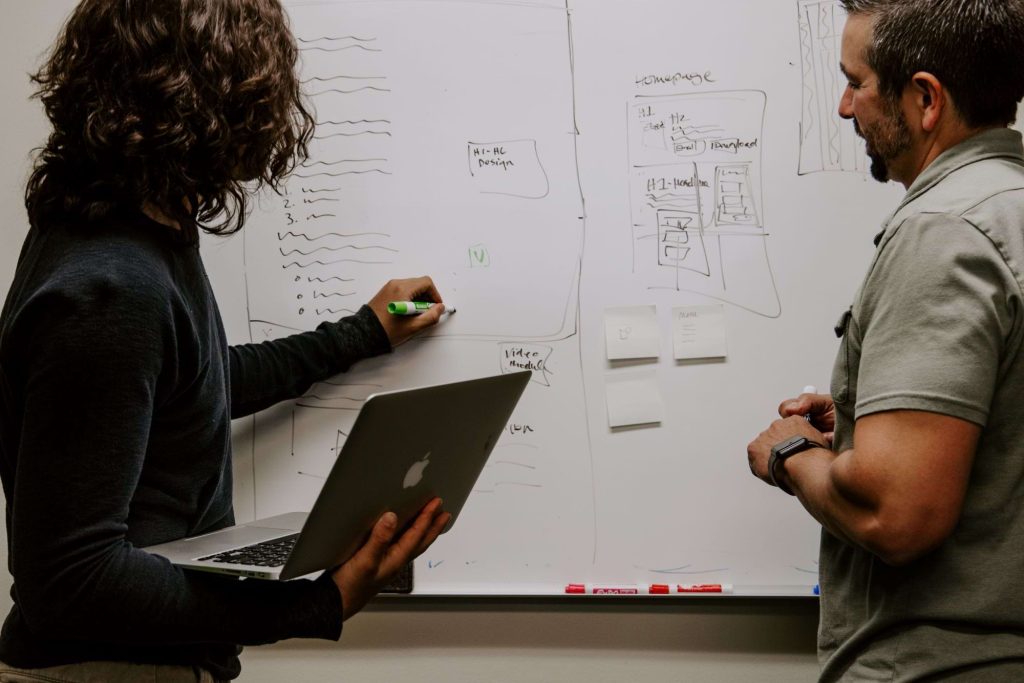Credibility can be determined by the investigator through interview questions, so they need to be strategic and carefully designed to help the interviewer understand the witness. Workplace investigations can sometimes lead to a ‘he said, she said’ situation; and if there is not enough or any physical evidence, it can be difficult to decide who is telling the truth. Interview questions need to be prepared in a manner that allows witnesses to share information and establish whether they are sincere. The investigator can use the interview questions to assess other factors related to a witness’s credibility such as their demeanour and motive.
Open-ended questions to establish credibility
The examination should encourage long and detailed answers as these will highlight people’s credibility. The interviewer should refrain from asking yes or no questions to confirm a fact. They should allow each witness to give their own version of events and then cross-examine the various accounts to evaluate fiction from facts. They should avoid questions that are already indicating an answer or are obviously false. For example, ‘The equipment was misplaced, wasn’t it?’ does not give as much room for an explanation as ‘Could you tell me what exactly happened with the equipment?’.
The first question indicates that there are two possible answers: Either the equipment was misplaced or it was not. It gives the witness a narrow space for an answer while the second question encourages them to speak about any detail that they think is related to the incident. It does not restrict them to a true or false mindset. This strategy promotes lengthier responses that give the investigator a better idea of what may have happened or how reliable the testimony is. Open-ended questions should therefore be used when it is appropriate to do so, to establish the credibility of the interviewee.
Questions to establish a motive
By asking questions about the witness’s actions before, during and after the incident the investigator can get a better idea of whether or not there is any motive or bias. To determine credibility, the interviewer needs to ask themselves: Is there any reason for the witness to lie? Are they covering someone or something? Are they leaving out important information? They can figure out the answers to those questions by asking questions such as ‘What did you do after you observed the incident?’. They do not need to hint at any particular action.
The interviewer could also examine if the witness has a history of lying or any negative views of the people involved that could motivate them to alter their story. However, they should not rely on their history; they can use it towards the end if they have strong reasons to think someone is being untruthful, but not from the beginning of the investigation. Identifying whether or not the witness can benefit from an outcome that is favourable to them is more important.
Demeanour can determine credibility
By asking questions that help build a logical order of events, the investigator can determine if the witness contradicts themselves. Asking the witness to revisit a certain part of the event can highlight if they are changing their story and their demeanour when trying to remember previous occurrences. Do they seem well-prepared? Are they nervous or scared? While the main focus should not be on the demeanour, checking their facial expressions and body language when confirming past statements or giving new ones can help.
If the witness is denying that an event happened then questions such as ‘’Why do you think they would allege that it happened?’’ ‘’Is there a reason why they would say this specific incident occurred?’’. It is helpful to look at how they are trying to deny the occurrence; if they are being deceptive or sincere, if they are giving relevant facts or irrelevant information. Denial of events that occurred and are supported by evidence can damage their credibility.

Cross-examination
Questions should be formed to address cross-examination as this will help determine the credibility of the people interviewed. All parties involved should answer “What did the parties involved do during the incident?” and “How or why did the incident occur?’’ along with other questions that allow the investigator to compare responses. This will allow them to figure out which information is accurate and which person recalls a different series of events.
By asking questions that require the date, time and place of the event the interviewer can understand whether the person sitting across from them observed the event or if they are telling a story they heard from someone else. This will support the investigator in making the interview process less complicated and ensure that there is progress towards finding the truth. It is a great strategy to ask questions that cover a variety of topics within one incident.
Considering how each party recalled information can also be a good indication of their credibility. Were they second-guessing themselves? Were they giving estimations or seemed unsure? Every observation is important even if it plays a small part in determining who is a reliable witness, it can contribute to the process and make it easier. Accurate and clear answers are better than emotion-based and uncertainty filled ones.
For example, “Anna was walking very fast when she slipped on the water and fell near the front door of the meeting room” is better than “I don’t think Anna was focused enough to see the water as she is very clumsy so she fell around the front area of the meeting room. I felt bad for her because it happened in front of everyone”. The first one is concise and clear while the second one includes some bias and irrelevant information. This is why questions should be worded in a way that encourages the interviewee to give their own version of events.
Conclusion
It is important to note that credibility can be hard to establish when bias is involved. Investigators may be tempted to look at past records from employees but this can further reinforce bias in the investigation. It could be that an individual who tends to lie is in this instance telling the truth. Conducting an extensive interview process with well-written questions is critical in establishing how plausible the answers received are.
Finally, coming to the conclusion that a witness is not credible does not necessarily mean they tried to lie or hide information. It might be that their recollection of an incident is not accurate or they did not observe it as closely or their ability to recall events is lacking.
Let's Get Started
Interested in learning more about how Polonious can help?
Get a free consultation or demo with one of our experts
Eleftheria Papadopoulou
Eleftheria has completed a Bachelor's of Business with a major in Marketing at the University of Technology Sydney. As part of her undergraduate studies she also obtained a Diploma in Languages with a major in Japanese. Following her graduation she has been working as a Marketing Coordinator and Content and Social Media Specialist.
Eleftheria is currently finishing her Master in Digital Marketing.




